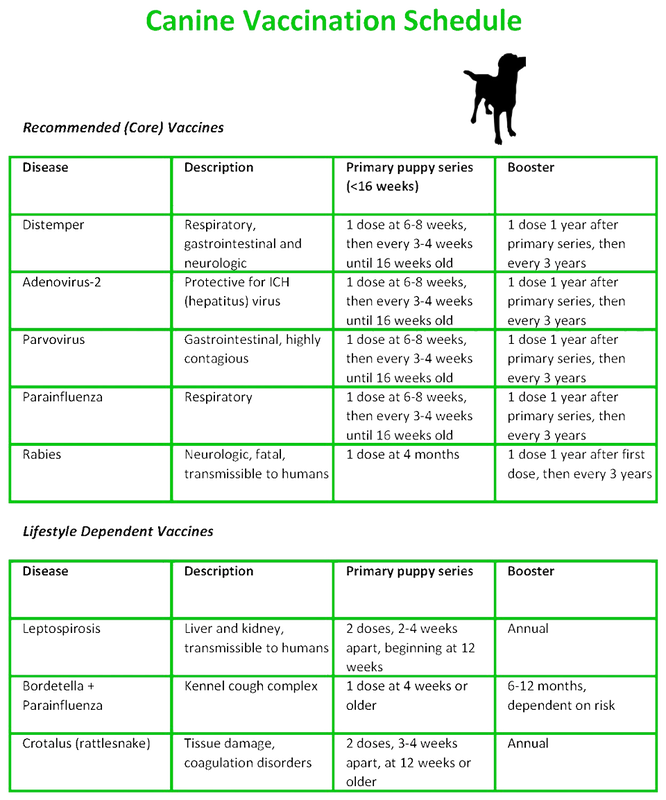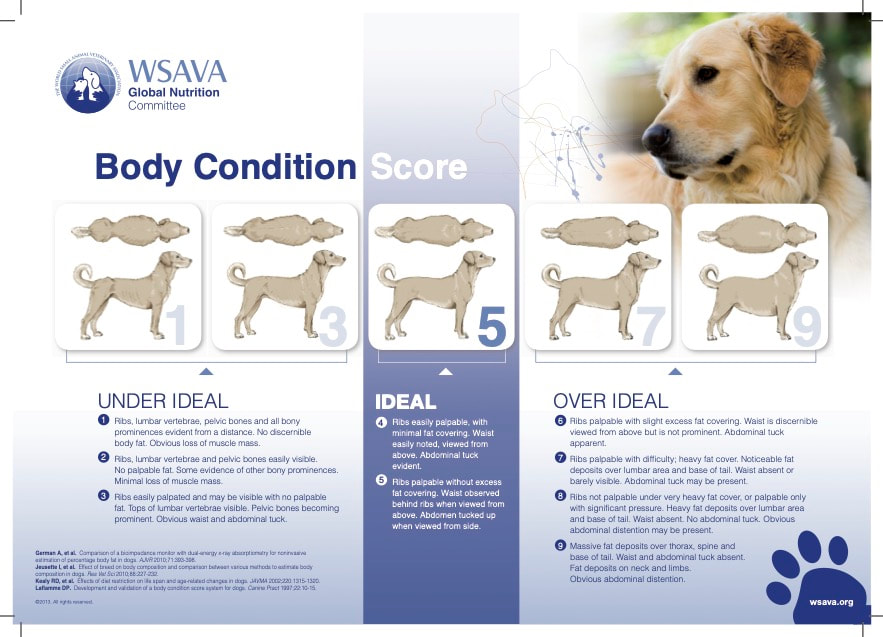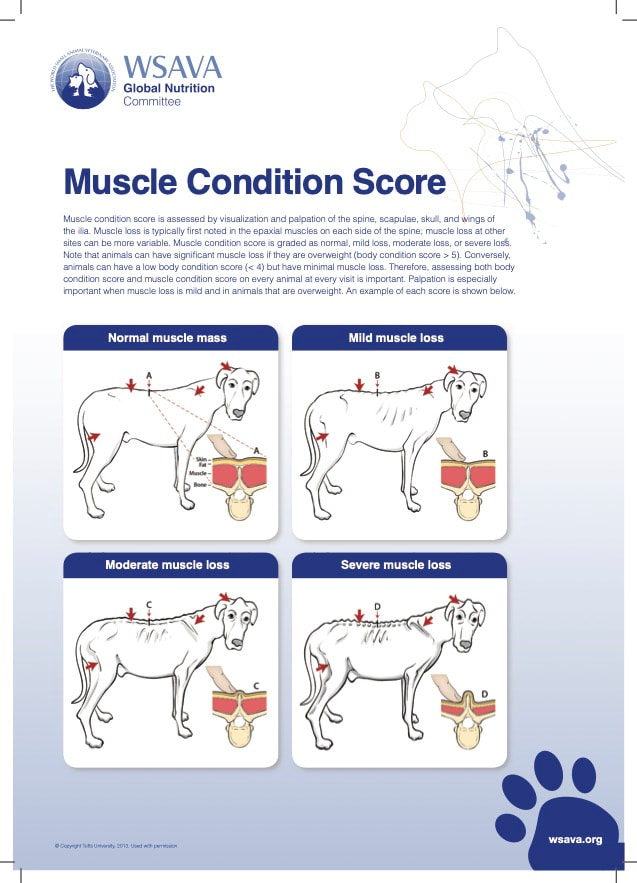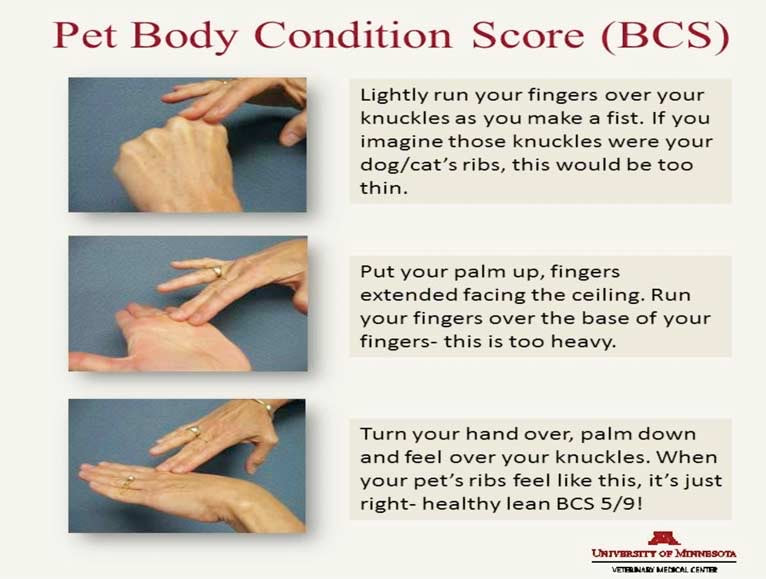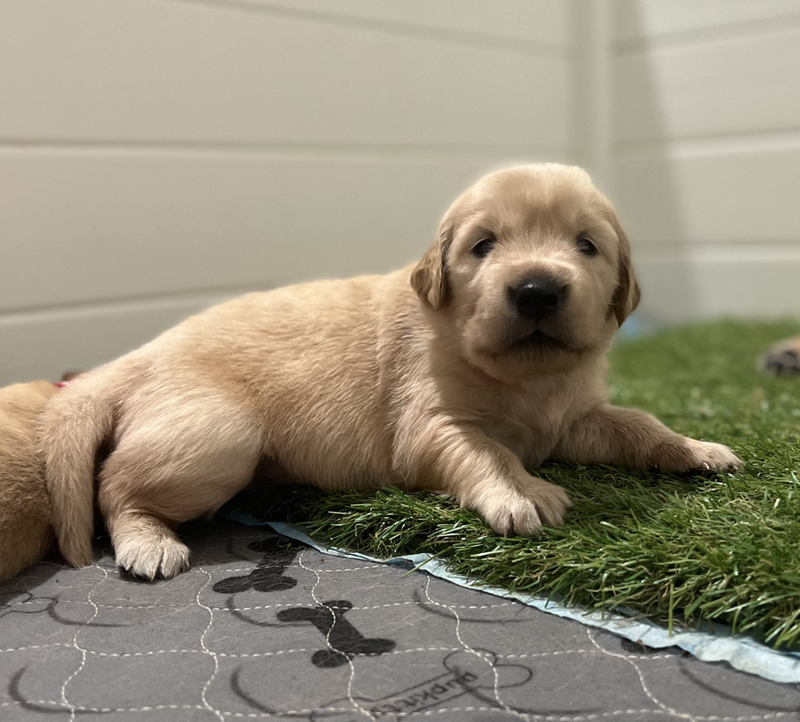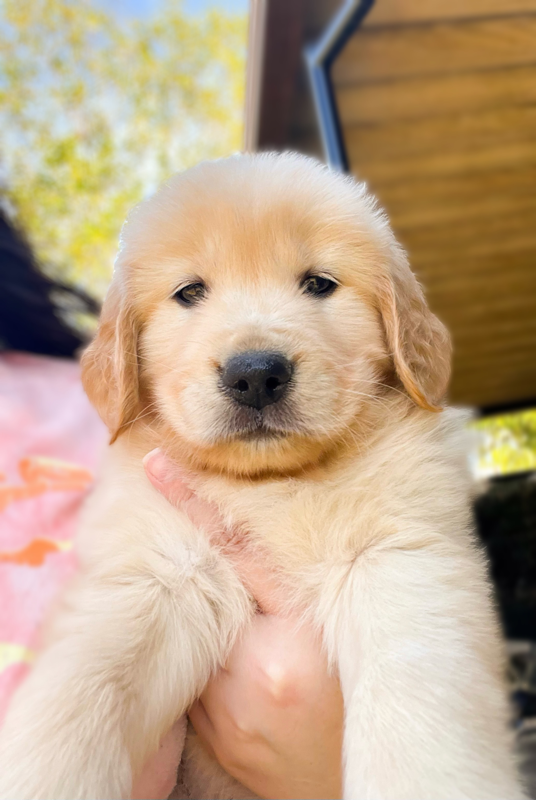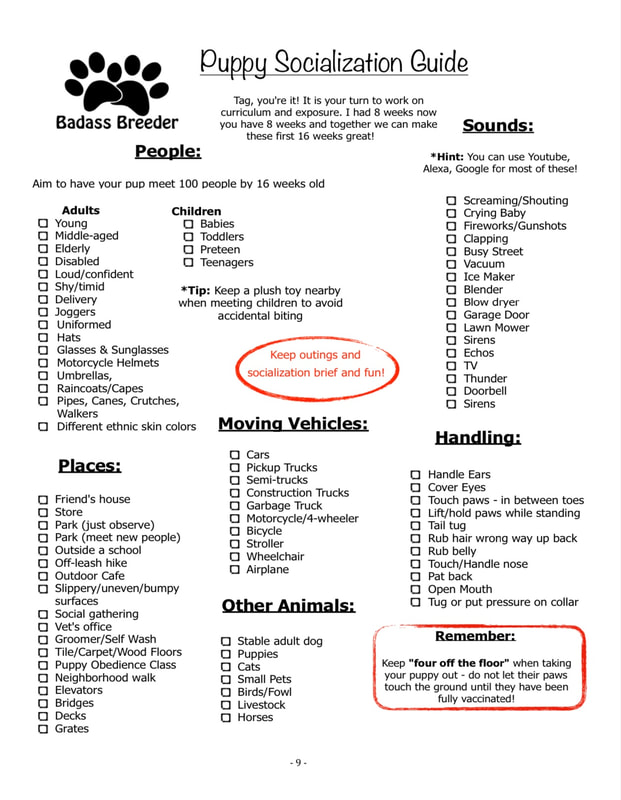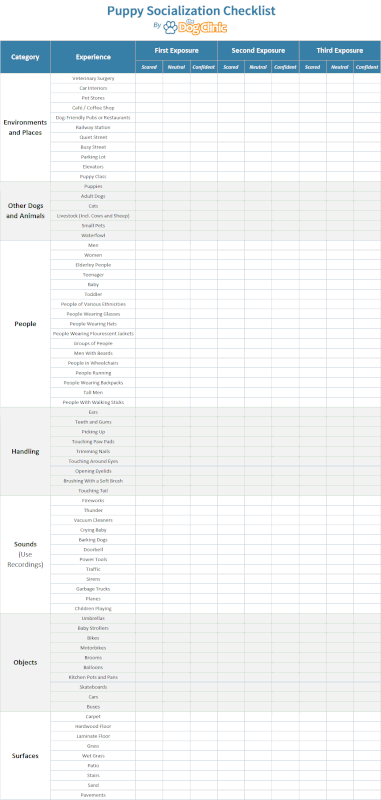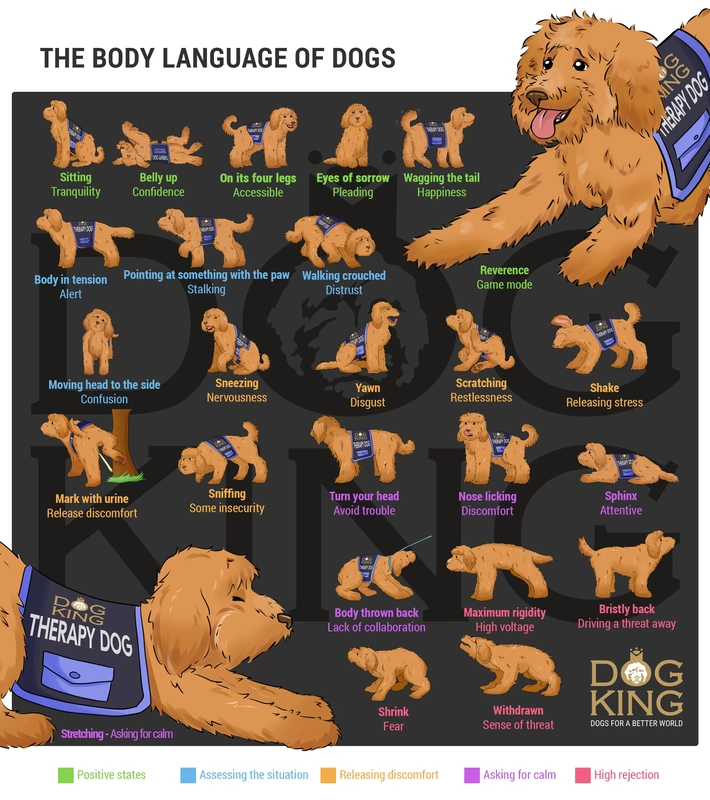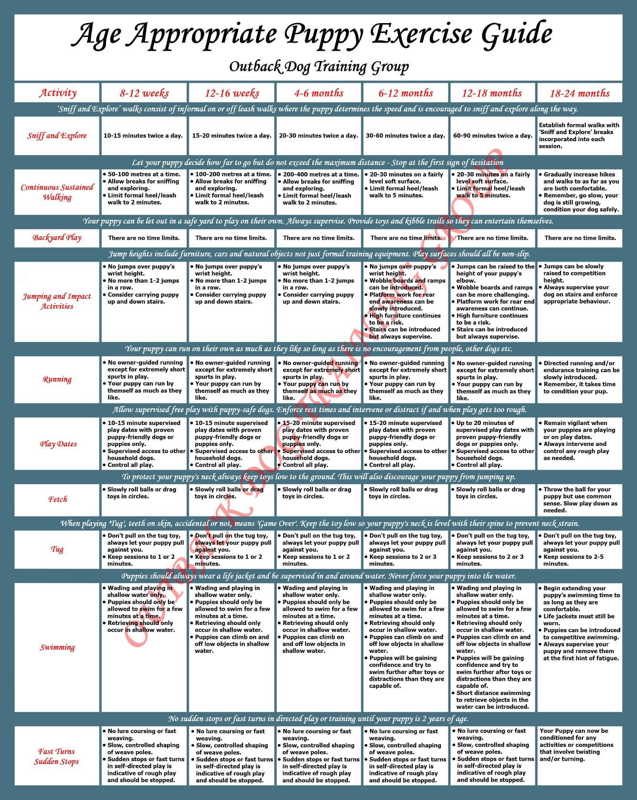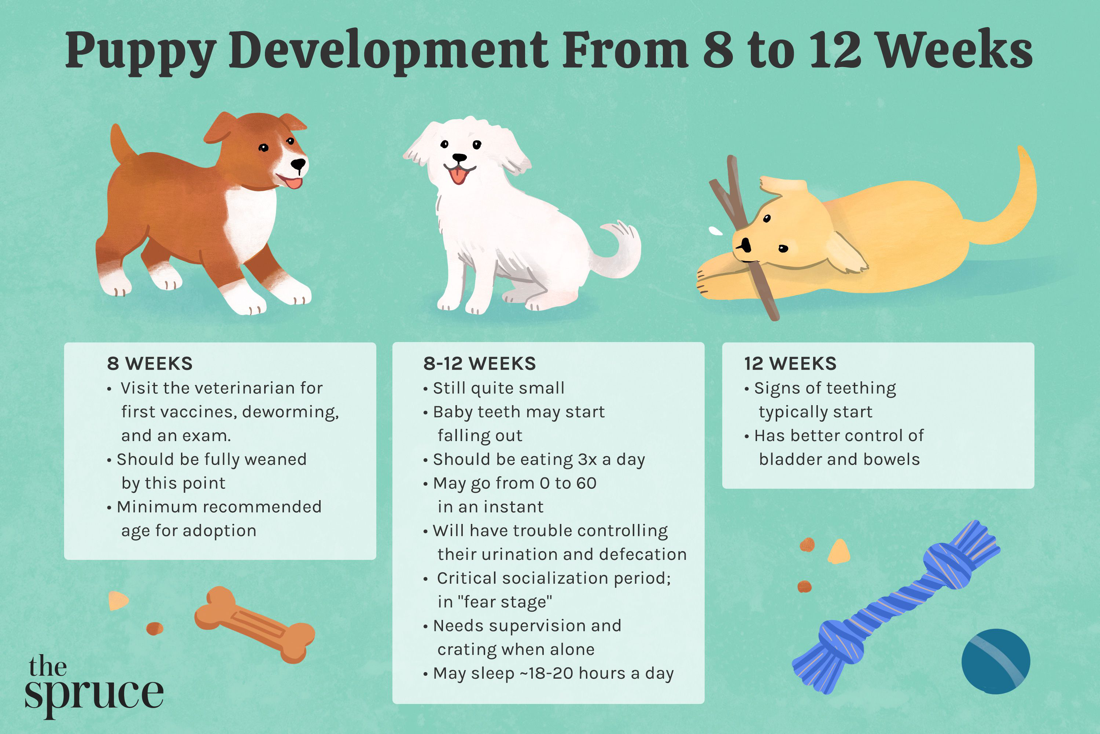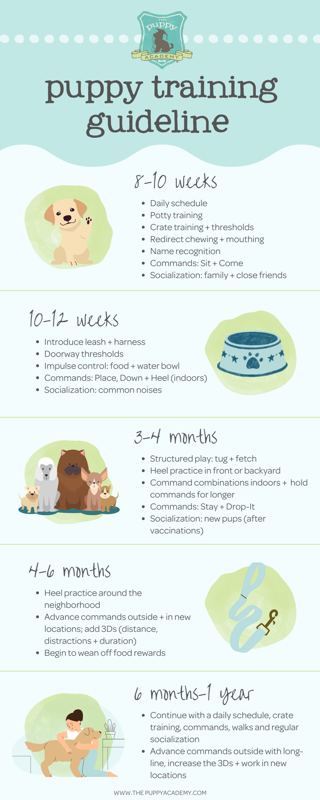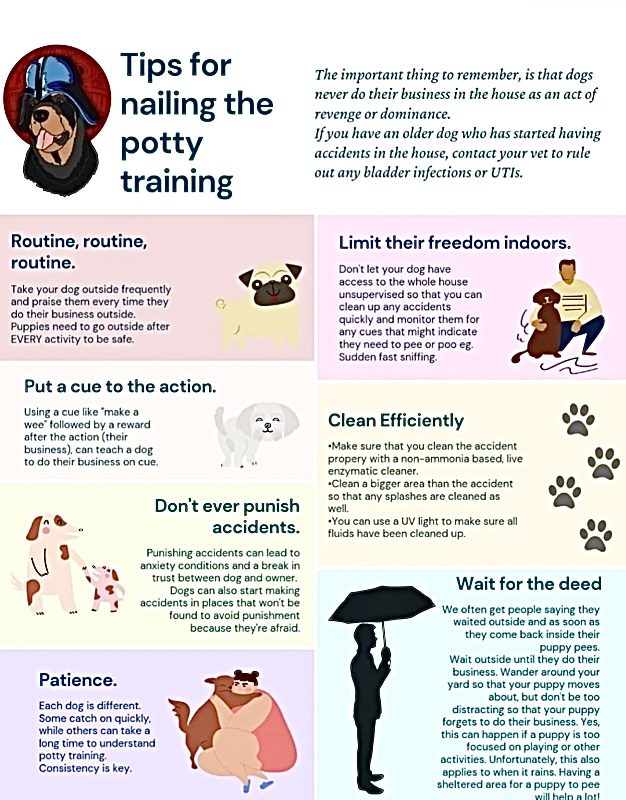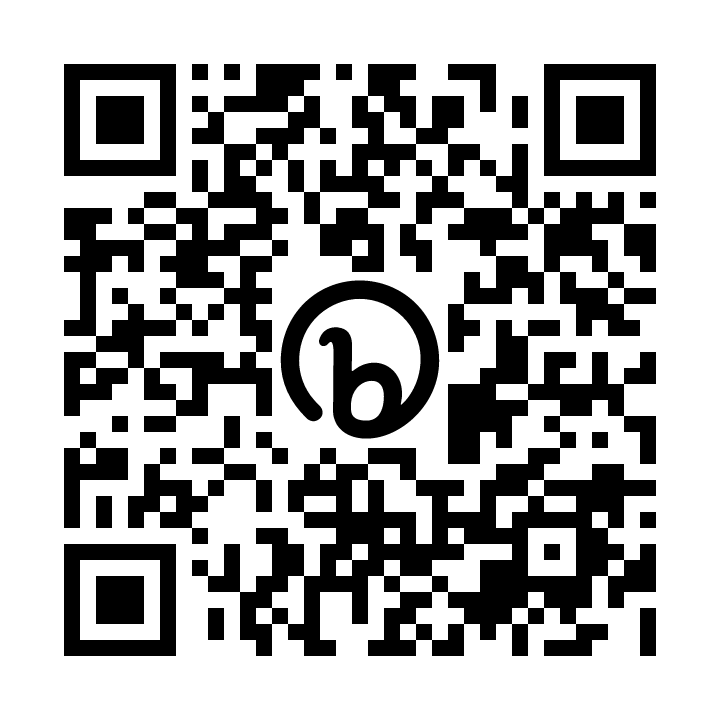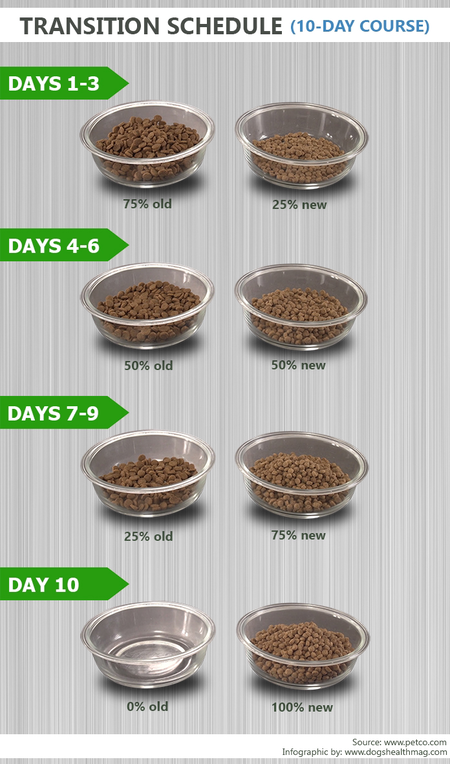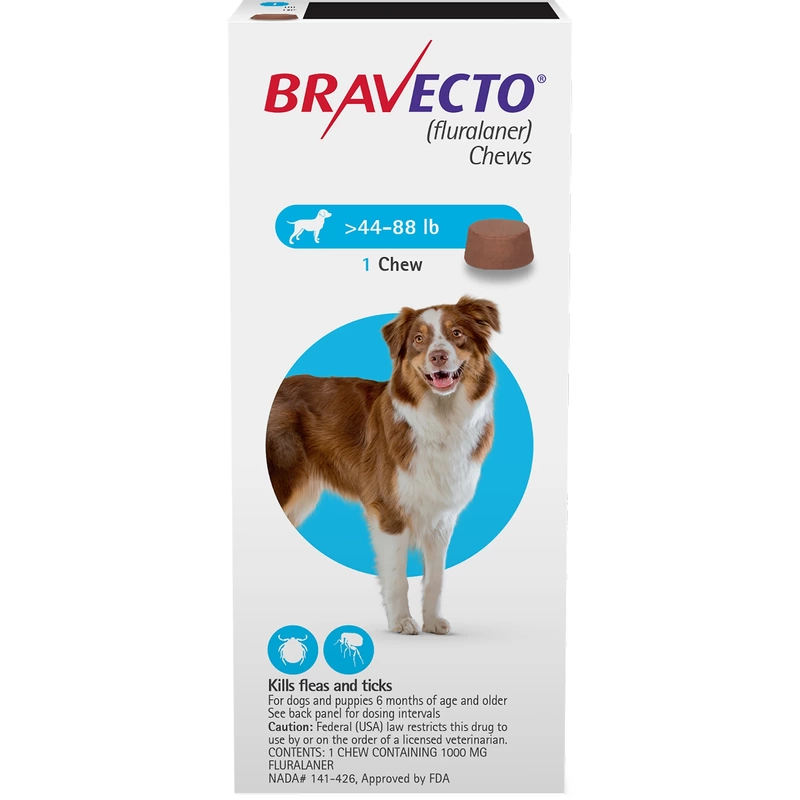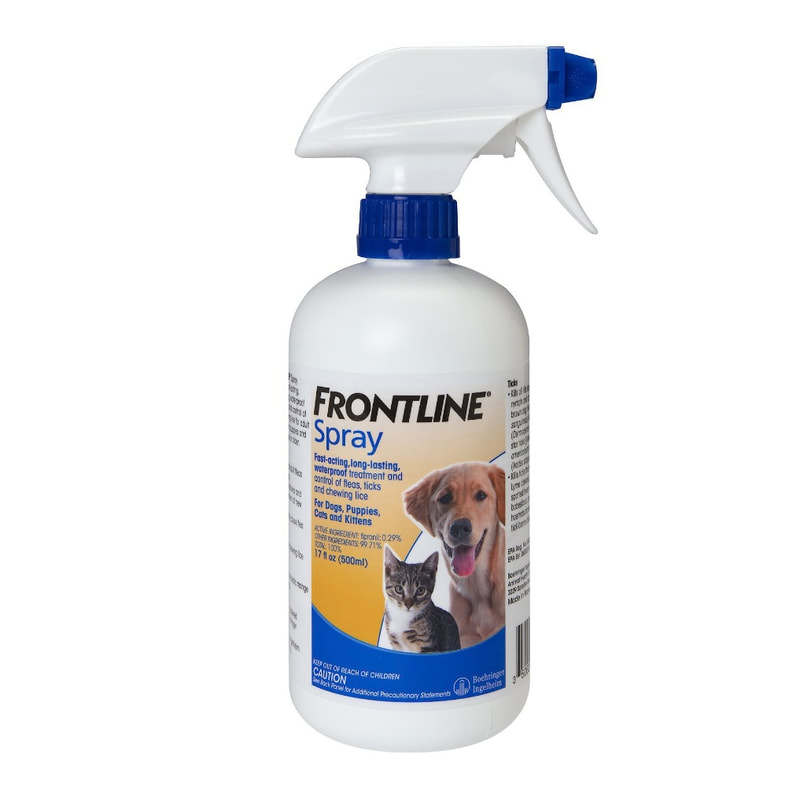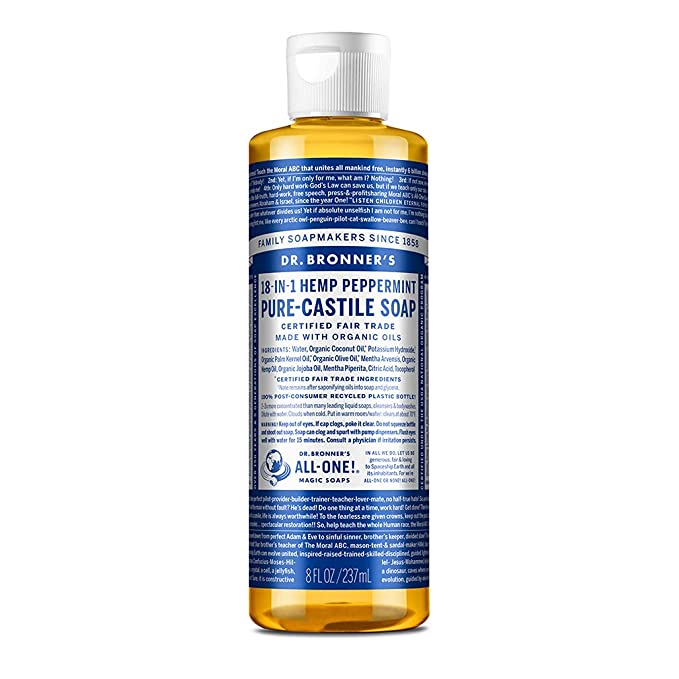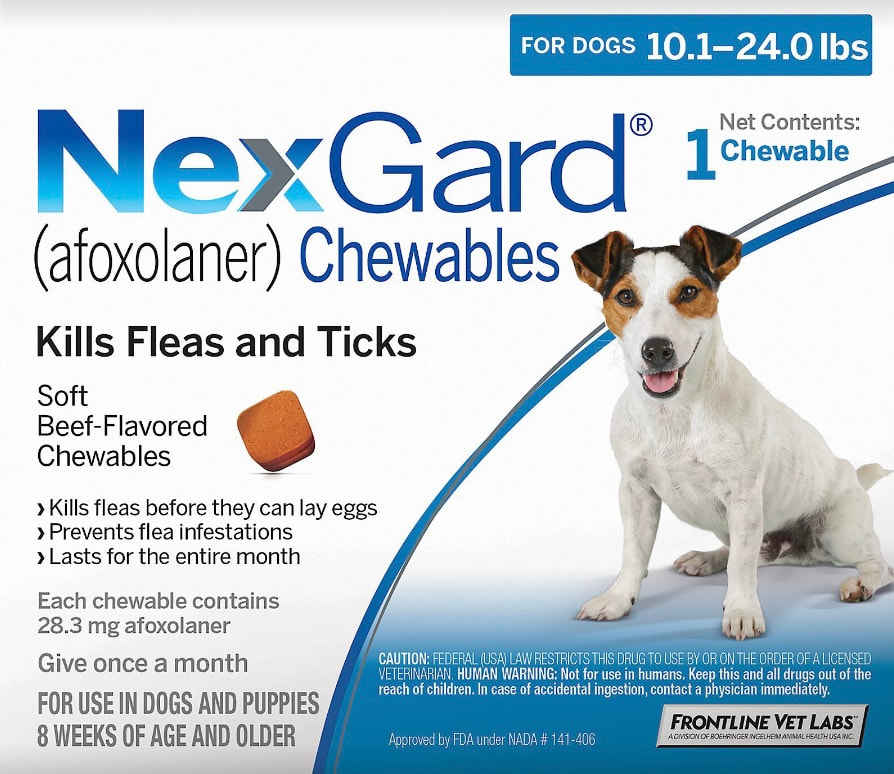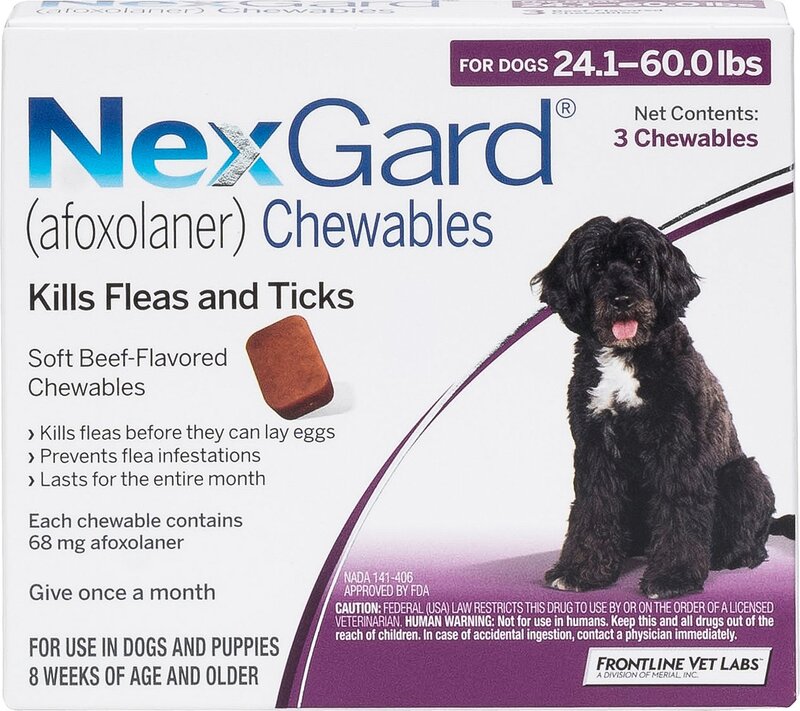Recommended buys for your new puppy
All of our recommended supplies are listed through our Amazon page. Click the link down below to view!
- Small Adjustable collar(10-14in)
- Slip lead or a leash with a snap clip (4-6ft)
- Name tag with your Puppy's Name & Your contact information
- Stainless steel Water Bowl
- Slow feeder food Bowl(we use outward hound)
- A bag of the food that your puppy is currently on. We recommend NOT to change their food for their first month at your home while they are still adjusting but they should stay on this food for up to 12 months at least. This is the most balanced high quality diet for a large breed puppy.
- A Snuggle puppy. Plays a heartbeat sound and helps your puppy settle at night(highly recommend!)
- Your puppy’s stomach could get upset from a change of environment and the excitement. We recommend having Plain greek yogurt, Bernie's perfect poop or Purina fortiflora on hand in the case of an upset stomach.
- Puppy pads for Travel. We will send your puppy home with a few puppy pads in their puppy pack but we do recommend having extra just in case! We do not feed our puppies just before traveling, as this can cause an upset stomach. The puppy will have access to water. Please be sure to give your puppy food & water when you get home!
- Optional: Medium Pet Carrier for traveling. Your puppy will be around 10 pounds at 8 weeks.
- Interactive Food Puzzle Toys
- A Snuffle Mat
- Chew toys.
- Toys. We recommend fluff free/tough toys.
- Poop Scoop
- Nail trimmers. We to use the Dremel Cordless dog nail grinder. Be cautious when using and try to use it on the low setting as it is very strong.
- Crate. An XXL 48 in. crate with a divider that your puppy can grow into is perfect for keeping your puppy safe and helps with potty training. We've found that having a grate on the bottom crate pan is super helpful when potty training.
- Flat Dog Bed
- Baby gate and/or Exercise pen
- Long pin Slicker brush
- Dog Toothbrush & Enzymatic Toothpaste, optional: water additive(VOHC approved recommended)
- Grooming wipes
- Ear cleaning liquid & Cotton round pads
- Puppy or Tearless Baby shampoo
- High Value Training treats. We like to use freeze dried beef liver.
- Training Treat pouch
- Enzymatic cleaner for accidents(we like Angry Orange)
- Carpet cleaner and solution(if you have carpet)
- For females, Dog diapers for their heats. Their first heat usually starts around 8mo-1 1/2 years (usually Large size)
- Optional: Male wrap diapers.
- Optional: 2 Snap’y fit Stainless Steel water/food bowls for your puppy’s crate (20 oz or 1 quart)
Health:
Our puppies are dewormed every 2 weeks or when necessary. Pyrantel is used to remove stomach worm parasites. Fenbendazole is given to remove stomach worm parasites and to treat/prevent Giardia. We also treat our puppies with Toltrazuril which is used to prevent and treat Coccidia. Our puppies receive a parvo specific vaccination at 4-5 weeks old and their first DHPP vaccination at 7-7.5 weeks old. Our puppies are fecal tested and examined by a licensed veterinarian before they leave our home. The Fecal test should show normal/negative results however if it does not then the litter will be treated prior to going home. Your puppy will NOT be fully vaccinated when they go home, they will need 2-3 more booster vaccinations with the last being at 16 weeks old. Please see the vaccination schedule below for more information! Your puppy will need to be treated for parasites every few months or when there is a positive fecal test. Puppies pick up parasites from the ground very easily since their immune system isn’t strong yet. Symptoms of parasites include: butt scooting, rounded belly, thin belly, excess hunger, lack of hunger, diarrhea, worms in stool, gas, dry dull coat and stomach pain. Parasites are found on the ground especially in dirt so we recommend not to let your puppy eat things off of the ground outside or eat dirt. Parasites can also be passed to your puppy from another dog that has them including by just sharing water. Please be cautious when letting your non fully vaccinated puppy into your yard as it’s not uncommon for neighborhood cats to track parasites and diseases into your yard with their paws. Our puppies do not have fleas however our vet may send our puppies home with Flea/Tick and Heartworm preventative as a starter pack(depending on availability). We recommend for you to keep your puppy on flea/tick and heartworm preventative if you live in an area where there is a lot of wildlife, open bodies of water and/or pets. If your puppy is not on flea/tick preventative, they may develop tapeworms from the fleas and Lyme disease from ticks. Please make sure to keep all 4 paws off of the floor in public or unknown spaces to keep your puppy safe from contracting a deadly illness.
Our puppies are dewormed every 2 weeks or when necessary. Pyrantel is used to remove stomach worm parasites. Fenbendazole is given to remove stomach worm parasites and to treat/prevent Giardia. We also treat our puppies with Toltrazuril which is used to prevent and treat Coccidia. Our puppies receive a parvo specific vaccination at 4-5 weeks old and their first DHPP vaccination at 7-7.5 weeks old. Our puppies are fecal tested and examined by a licensed veterinarian before they leave our home. The Fecal test should show normal/negative results however if it does not then the litter will be treated prior to going home. Your puppy will NOT be fully vaccinated when they go home, they will need 2-3 more booster vaccinations with the last being at 16 weeks old. Please see the vaccination schedule below for more information! Your puppy will need to be treated for parasites every few months or when there is a positive fecal test. Puppies pick up parasites from the ground very easily since their immune system isn’t strong yet. Symptoms of parasites include: butt scooting, rounded belly, thin belly, excess hunger, lack of hunger, diarrhea, worms in stool, gas, dry dull coat and stomach pain. Parasites are found on the ground especially in dirt so we recommend not to let your puppy eat things off of the ground outside or eat dirt. Parasites can also be passed to your puppy from another dog that has them including by just sharing water. Please be cautious when letting your non fully vaccinated puppy into your yard as it’s not uncommon for neighborhood cats to track parasites and diseases into your yard with their paws. Our puppies do not have fleas however our vet may send our puppies home with Flea/Tick and Heartworm preventative as a starter pack(depending on availability). We recommend for you to keep your puppy on flea/tick and heartworm preventative if you live in an area where there is a lot of wildlife, open bodies of water and/or pets. If your puppy is not on flea/tick preventative, they may develop tapeworms from the fleas and Lyme disease from ticks. Please make sure to keep all 4 paws off of the floor in public or unknown spaces to keep your puppy safe from contracting a deadly illness.
Training & Socialization:
All of our dogs are crate trained, we introduce our puppies to crate training and we highly recommend for our puppy owners to crate train their puppy as well. Crate training is extremely important although in the moment most may think it’s not because “The puppy will be by my side all of the time, so what’s the use?” however puppies need boundaries and not having any could eventually lead to severe separation anxiety when you have to be away for appointments, shopping, events, etc. Benefits of crate training would be: it gives your puppy their own personal space away from other dogs and children, it helps with potty training, it helps to keep your pet safe including from being destructive or ingesting dangerous items while you are away shortly or just unable to supervise them at that moment, it helps prepare them and not be as stressed when they have to be away from you while being boarded, at a family member or friends house, at the groomers, at the vet, flying on an airplane, being transported in the car, etc. Your puppy should not have full access to your home unsupervised until they learn the house rules and you can trust them being alone, which is usually around 2 years old.
We recommend our new puppy owners to start on basic training a day or two after they bring their new puppy home as this allows the puppy to settle and get used to their new life with you. Let’s face it.. puppies will get bored during training. We like to keep our training sessions short and switch back n forth from what we’re training to help keep them interested and focused on us. If they start to get bored, tired or wander off during training then we end the session and either have another short session later that same day or the next day(depending on the dog). We recommend Online classes for training at home and finding a local trainer that offers group puppy class sessions to help socialize them, learn new techniques and for you to learn how to build a solid relationship with the puppy to work as a team.
All of our dogs are crate trained, we introduce our puppies to crate training and we highly recommend for our puppy owners to crate train their puppy as well. Crate training is extremely important although in the moment most may think it’s not because “The puppy will be by my side all of the time, so what’s the use?” however puppies need boundaries and not having any could eventually lead to severe separation anxiety when you have to be away for appointments, shopping, events, etc. Benefits of crate training would be: it gives your puppy their own personal space away from other dogs and children, it helps with potty training, it helps to keep your pet safe including from being destructive or ingesting dangerous items while you are away shortly or just unable to supervise them at that moment, it helps prepare them and not be as stressed when they have to be away from you while being boarded, at a family member or friends house, at the groomers, at the vet, flying on an airplane, being transported in the car, etc. Your puppy should not have full access to your home unsupervised until they learn the house rules and you can trust them being alone, which is usually around 2 years old.
We recommend our new puppy owners to start on basic training a day or two after they bring their new puppy home as this allows the puppy to settle and get used to their new life with you. Let’s face it.. puppies will get bored during training. We like to keep our training sessions short and switch back n forth from what we’re training to help keep them interested and focused on us. If they start to get bored, tired or wander off during training then we end the session and either have another short session later that same day or the next day(depending on the dog). We recommend Online classes for training at home and finding a local trainer that offers group puppy class sessions to help socialize them, learn new techniques and for you to learn how to build a solid relationship with the puppy to work as a team.
Training treats and chews:
It's no surprise that a puppy needs training to set the foundation of how you expect them to behave and if you want to teach them fun tricks! Training a puppy requires lots of treats, correct timing and consistency. When using a lot of treats it can cause stomach problems like diarrhea, sometimes it can be due to the ingredients or just the high volume in itself. To avoid any stomach issues when training our puppies, we typically like to train our puppies using the kibble from their meals. We stick to single ingredient treats and chews. On our adult dogs or puppies with low stomach sensitivity, we use high value treats like chicken, beef, chicken/beef hot dog, or freeze dried liver. When puppies are teething we like to give our puppies Ice to chew on as a “treat”, it helps soothe their sore gums. For chewing. we like to provide Bully/Pizzle sticks, Raw bones(non weight bearing), Benebones and Fish skin chews. Always Always supervise your puppy while they are chewing on bones. Benebones must be replaced when they become worn(every few weeks to a month), as the chew itself is non-edible and pieces of the chew can be swallowed by your dog.
We do not recommend giving your dog cooked bones, antlers or rawhide. Antlers can fracture your pups teeth as they are just too hard. If you think about it.. Antlers are used as a deadly weapon for protection. They are extremely tough which can cause a tooth fracture if your dog chews too hard on them, usually this happens when they try to get to the marrow. Cooked bones & Rawhide are a choking hazard plus are likely to cause an intestinal obstruction. Obstruction Complications are life-threatening and surgery is very expensive to fix($5000+). Consider it a blessing if one passes through their GI system without complications. When bones are cooked the moisture and nutrients are removed from them and they either become brittle or hardened. Cooked bones are unnatural to dogs, they lack nutrition, they are not absorbed and are undigestible by the stomach. Non-weight bearing Raw bones are soft, flexible, nutritious, absorbed by the body and digestible. Weight bearing raw bones are too hard, they also have a tendency to splinter and fracture teeth.
It's no surprise that a puppy needs training to set the foundation of how you expect them to behave and if you want to teach them fun tricks! Training a puppy requires lots of treats, correct timing and consistency. When using a lot of treats it can cause stomach problems like diarrhea, sometimes it can be due to the ingredients or just the high volume in itself. To avoid any stomach issues when training our puppies, we typically like to train our puppies using the kibble from their meals. We stick to single ingredient treats and chews. On our adult dogs or puppies with low stomach sensitivity, we use high value treats like chicken, beef, chicken/beef hot dog, or freeze dried liver. When puppies are teething we like to give our puppies Ice to chew on as a “treat”, it helps soothe their sore gums. For chewing. we like to provide Bully/Pizzle sticks, Raw bones(non weight bearing), Benebones and Fish skin chews. Always Always supervise your puppy while they are chewing on bones. Benebones must be replaced when they become worn(every few weeks to a month), as the chew itself is non-edible and pieces of the chew can be swallowed by your dog.
We do not recommend giving your dog cooked bones, antlers or rawhide. Antlers can fracture your pups teeth as they are just too hard. If you think about it.. Antlers are used as a deadly weapon for protection. They are extremely tough which can cause a tooth fracture if your dog chews too hard on them, usually this happens when they try to get to the marrow. Cooked bones & Rawhide are a choking hazard plus are likely to cause an intestinal obstruction. Obstruction Complications are life-threatening and surgery is very expensive to fix($5000+). Consider it a blessing if one passes through their GI system without complications. When bones are cooked the moisture and nutrients are removed from them and they either become brittle or hardened. Cooked bones are unnatural to dogs, they lack nutrition, they are not absorbed and are undigestible by the stomach. Non-weight bearing Raw bones are soft, flexible, nutritious, absorbed by the body and digestible. Weight bearing raw bones are too hard, they also have a tendency to splinter and fracture teeth.
Puppy Food:
For our litters we sometimes bounce around with different formulas. Our dogs & puppies are raised on Purina Pro Plan, Hill’s Science Diet, Eukanuba or Farmina. Other recommended brands include: Victor, Royal Canin and Iam’s. We feed a Lamb, Salmon or Chicken protein kibble diet. We also feed fresh Lamb, Chicken, Duck, Turkey, Sardines, Rabbit, Venison, Bison, Beef, Fruit, Chicken Eggs, Quail Eggs, Greek Yogurt, Kefir, Bone broth & some vegetables as treats in moderation. These foods should only be given in small amounts if in addition to kibble. A Raw diet may be used as an alternative to kibble.. when feeding a raw diet you must make sure that a canine nutritionist reviews the diet to confirm that it is an appropriate balanced diet for your growing large breed puppy. After your dog is spayed at 18 months old or neutered after 24 months old, we recommend to switch them over to an adult dog food, a low protein/fat dog food or a healthy weight formula.
Whichever puppy food you decide to feed, it should contain DHA & Glucosamine. If the diet does not contain these then you must at least supplement. We feed a diet that contains them AND supplement with Cosequin for healthy joints. You may supplement with Salmon oil(Omega 3) for DHA & EPA. Traditional puppy food is usually not recommended for large breed puppies such as golden retrievers as it can lead to the puppy growing too fast at an unhealthy rate which can cause issues for the puppy’s joints. Large breed puppy food and an All life Stage food is specifically designed to a perfect ratio that will slow the puppy’s physical growth down a bit and allow the puppy to develop at a normal healthy rate. DHA is great for brain development, healthy coat and skin. Glucosamine is great for joint support and especially important for a growing puppy, active dog or senior dog. You should not feed “Grain-Free” dog food as it has been linked to Heart Disease(DCM) in Golden Retrievers due to elevated pea protein ingredients. We will send your puppy home with a small bag of the food that they were raised on, please make sure that you use the same food that we are using when you take your puppy home. An upset stomach caused by a sudden diet change can can lead to diarrhea and dehydration. Any changes to the puppy's diet must be gradual and we recommend for you to feed a puppy food with a similar protien to fat ratio and protein source as the one we are feeding to avoid tummy issues, please see the transition schedule for reference.
Please keep in mind that we are not Veterinarians. Any recommendations that we give are based off of what we have learned works best for us and our puppies through many years of experience and research. However what may work for one dog or two dogs may not always work for the next dog.
For our litters we sometimes bounce around with different formulas. Our dogs & puppies are raised on Purina Pro Plan, Hill’s Science Diet, Eukanuba or Farmina. Other recommended brands include: Victor, Royal Canin and Iam’s. We feed a Lamb, Salmon or Chicken protein kibble diet. We also feed fresh Lamb, Chicken, Duck, Turkey, Sardines, Rabbit, Venison, Bison, Beef, Fruit, Chicken Eggs, Quail Eggs, Greek Yogurt, Kefir, Bone broth & some vegetables as treats in moderation. These foods should only be given in small amounts if in addition to kibble. A Raw diet may be used as an alternative to kibble.. when feeding a raw diet you must make sure that a canine nutritionist reviews the diet to confirm that it is an appropriate balanced diet for your growing large breed puppy. After your dog is spayed at 18 months old or neutered after 24 months old, we recommend to switch them over to an adult dog food, a low protein/fat dog food or a healthy weight formula.
Whichever puppy food you decide to feed, it should contain DHA & Glucosamine. If the diet does not contain these then you must at least supplement. We feed a diet that contains them AND supplement with Cosequin for healthy joints. You may supplement with Salmon oil(Omega 3) for DHA & EPA. Traditional puppy food is usually not recommended for large breed puppies such as golden retrievers as it can lead to the puppy growing too fast at an unhealthy rate which can cause issues for the puppy’s joints. Large breed puppy food and an All life Stage food is specifically designed to a perfect ratio that will slow the puppy’s physical growth down a bit and allow the puppy to develop at a normal healthy rate. DHA is great for brain development, healthy coat and skin. Glucosamine is great for joint support and especially important for a growing puppy, active dog or senior dog. You should not feed “Grain-Free” dog food as it has been linked to Heart Disease(DCM) in Golden Retrievers due to elevated pea protein ingredients. We will send your puppy home with a small bag of the food that they were raised on, please make sure that you use the same food that we are using when you take your puppy home. An upset stomach caused by a sudden diet change can can lead to diarrhea and dehydration. Any changes to the puppy's diet must be gradual and we recommend for you to feed a puppy food with a similar protien to fat ratio and protein source as the one we are feeding to avoid tummy issues, please see the transition schedule for reference.
Please keep in mind that we are not Veterinarians. Any recommendations that we give are based off of what we have learned works best for us and our puppies through many years of experience and research. However what may work for one dog or two dogs may not always work for the next dog.
Safe Human Foods snacks:
We like to give our dogs fresh healthy snacks in moderation. Just make sure that when you are feeding your dog vegetables or fruits; you must remove & dispose of all seeds, peels, rinds and leafs/stems before giving it to your dog as they are toxic. The pits or seeds of fruit are a choking hazard, they contain cyanide poison and disrupt your dogs blood oxygen levels. Canned fruits contain too much sugar, we do not recommend feeding this to your dog. Most RAW bones are okay but you must check before giving them to your dog. Please DO NOT feed your dog ANY kind of cooked bones; they splinter and break which can cause a very serious bowel obstruction requiring surgery or in some cases death. Please keep in mind that we are NOT veterinarians and we do what we’ve learned works best for us and our dogs!
We like to give our dogs fresh healthy snacks in moderation. Just make sure that when you are feeding your dog vegetables or fruits; you must remove & dispose of all seeds, peels, rinds and leafs/stems before giving it to your dog as they are toxic. The pits or seeds of fruit are a choking hazard, they contain cyanide poison and disrupt your dogs blood oxygen levels. Canned fruits contain too much sugar, we do not recommend feeding this to your dog. Most RAW bones are okay but you must check before giving them to your dog. Please DO NOT feed your dog ANY kind of cooked bones; they splinter and break which can cause a very serious bowel obstruction requiring surgery or in some cases death. Please keep in mind that we are NOT veterinarians and we do what we’ve learned works best for us and our dogs!
|
|
|
Flea & Tick Preventatives:
We consider many options when it comes to repelling and killing fleas/ticks. During the Spring & Summer, we preferably use Bravecto 3month chewable(6mo+), Nexgard monthly chewable(8w+) or Frontline monthly topical spray(8w+) on our adult dogs and older puppies. We DO NOT recommend ANY flea/tick collars or flea/tick soap. In our experience, dogs like to play and mouth each other’s necks which can cause them to ingest the chemicals on the collars leading to possible neurological issues. For a more natural alternative.. we like to bathe our dogs/puppies in Dr. Bronner's Peppermint Pure Castile Liquid Soap, this helps to kill and repel any fleas or ticks but needs to be diluted with lots of water before use and used with a conditioner. Another alternative to kill fleas on their coat is the Original Blue Dawn Dish soap. However this should be diluted, used only temporarily and followed up with a heavy conditioner because it will dry out their skin and coat. We DO NOT recommend Hartz or Serresto dog flea/tick medication, collars, shampoos or conditioners due to research and first-hand experience.
Please keep in mind that we are NOT veterinarians and we do what we’ve learned works best for us and our dogs!
We consider many options when it comes to repelling and killing fleas/ticks. During the Spring & Summer, we preferably use Bravecto 3month chewable(6mo+), Nexgard monthly chewable(8w+) or Frontline monthly topical spray(8w+) on our adult dogs and older puppies. We DO NOT recommend ANY flea/tick collars or flea/tick soap. In our experience, dogs like to play and mouth each other’s necks which can cause them to ingest the chemicals on the collars leading to possible neurological issues. For a more natural alternative.. we like to bathe our dogs/puppies in Dr. Bronner's Peppermint Pure Castile Liquid Soap, this helps to kill and repel any fleas or ticks but needs to be diluted with lots of water before use and used with a conditioner. Another alternative to kill fleas on their coat is the Original Blue Dawn Dish soap. However this should be diluted, used only temporarily and followed up with a heavy conditioner because it will dry out their skin and coat. We DO NOT recommend Hartz or Serresto dog flea/tick medication, collars, shampoos or conditioners due to research and first-hand experience.
Please keep in mind that we are NOT veterinarians and we do what we’ve learned works best for us and our dogs!
